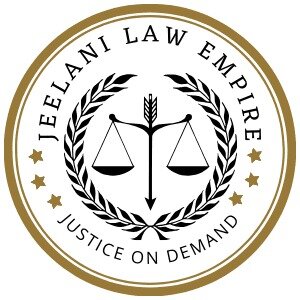Best Renewable & Alternative Energy Lawyers in Karachi
Share your needs with us, get contacted by law firms.
Free. Takes 2 min.
List of the best lawyers in Karachi, Pakistan
About Renewable & Alternative Energy Law in Karachi, Pakistan
Karachi, Pakistan's economic powerhouse, faces urgent energy demands and persistent electricity shortages. In recent years, both the government and the private sector have shown increasing interest in renewable and alternative energy sources such as solar, wind, biomass, and small-scale hydropower to address these challenges. Renewable and alternative energy law in Karachi governs the development, licensing, investment, and operation of clean energy projects. It also encompasses regulations aimed at promoting environmentally responsible energy solutions and attracting both local and foreign investment in this growing sector.
Why You May Need a Lawyer
Navigating the legal landscape of renewable and alternative energy in Karachi can be complex. The involvement of multiple government agencies, evolving licensing procedures, and rapidly changing regulations make legal assistance essential. Individuals and businesses might require a lawyer if they are looking to:
- Set up a solar, wind, or other renewable energy project for commercial or residential purposes
- Understand the legal requirements for importing, installing, or selling renewable energy equipment
- Secure the necessary permits and licenses from government authorities
- Negotiate Power Purchase Agreements (PPAs) with utility companies or private buyers
- Address land use issues or environmental clearance for energy projects
- Resolve disputes related to contracts or property rights in connection with energy projects
- Access incentives, subsidies, or tax breaks for renewable energy investments
- Ensure compliance with safety and environmental standards
Local Laws Overview
Several key laws, policies, and government bodies structure the renewable and alternative energy sector in Karachi:
- Alternative and Renewable Energy Policy: This national policy sets the frameworks for investment, tariff structures, and the role of private and public stakeholders in renewable energy.
- NEPRA (National Electric Power Regulatory Authority) Rules: NEPRA regulates power generation licensing, grid integration, and tariff approvals for energy projects, including renewables.
- ARE (Alternative Renewable Energy) Board: Operates as the central contact for renewable project developers seeking approvals, guidance, and incentives.
- Environmental Regulations: The Sindh Environmental Protection Agency (SEPA) governs environmental Impact Assessment (EIA) procedures and compliance for all energy projects within Karachi.
- Land Administration Laws: These govern the acquisition, lease, and usage of land for renewable energy plants and infrastructure.
- Import and Customs Regulations: Pakistan’s customs regulations apply to the importation of solar panels, batteries, and other renewable equipment, often with incentives or reduced duty for clean energy products.
- Local Zoning and Building Codes: Karachi’s municipal corporations have additional rules regarding installation and safety for rooftop solar systems and other installations.
Frequently Asked Questions
What types of renewable energy projects are most common in Karachi?
Solar power, particularly rooftop solar installations, and wind energy projects are the most popular renewable energy options in Karachi, due to the city's climate and available resources.
What licenses or permits are needed to start a renewable energy business in Karachi?
You typically need a generation license from NEPRA, environmental approvals from SEPA, and local permits such as building or grid-connection permissions, depending on the project size and type.
Are there government incentives for installing renewable energy systems in Karachi?
Yes, there are various incentives including tax breaks, reduced import duties, and net metering policies that allow private producers to sell excess power to the grid.
Can I legally install a rooftop solar system at my residence or business?
Yes, individuals and businesses are permitted to install rooftop solar systems, provided they comply with safety, metering, and connection guidelines established by local authorities.
Are Power Purchase Agreements (PPAs) enforceable under Pakistani law?
Yes, PPAs are recognized and enforceable contracts, but they must adhere to NEPRA’s guidelines and often require registration or approval from relevant agencies.
What are the environmental compliance requirements for energy projects?
Every renewable energy project must typically obtain environmental assessments and clearances from SEPA, ensuring minimal impact on the local environment.
Can foreigners or foreign companies invest in Karachi's renewable energy sector?
Yes, Pakistan's policies welcome foreign investment in renewable energy, subject to certain regulatory approvals and compliance with national and provincial laws.
Is net metering available in Karachi?
Yes, the net metering system allows residents and businesses to connect solar or wind systems to the grid and receive compensation for excess electricity supplied.
What should I do in case of a legal dispute related to a renewable energy project?
Seek assistance from a lawyer experienced in energy law to review contracts and represent you before regulatory authorities or in court, if necessary.
How long does it take to get all the permits for a renewable energy project?
The time frame varies by project size and type, but it can range from a few weeks for small installations to several months for large-scale projects, depending on regulatory requirements and responsiveness of authorities.
Additional Resources
If you need more information or guidance, consider reaching out to these organizations and government bodies:
- Sindh Energy Department: Provides policy guidance and facilitates new projects at the provincial level.
- Alternative Energy Development Board (AEDB): Acts as a one-window facilitator for renewable energy project development and investment.
- National Electric Power Regulatory Authority (NEPRA): For licensing and regulatory matters related to power generation and distribution.
- Sindh Environmental Protection Agency (SEPA): For environmental impact assessment, approvals, and compliance matters.
- Karachi Electric (KE): The primary utility for grid connection, metering, and Power Purchase Agreement arrangements.
- Pakistan Solar Association: For industry insights and private-sector information on solar technology and business.
Next Steps
If you are considering developing, investing in, or installing a renewable or alternative energy system in Karachi, it is advisable to:
- Clearly outline your project goals and requirements
- Gather basic information about the type and scale of your intended project
- Consult with a lawyer who has expertise in renewable energy, property, and regulatory law
- Engage with relevant governmental bodies early in the planning stage
- Ensure all applications, contracts, and compliance documents are thoroughly reviewed for legal accuracy
- Stay updated on incentive programs or new regulations that may affect your project
A qualified legal professional can help you avoid costly mistakes, ensure regulatory compliance, and maximize your investment in Karachi's renewable and alternative energy sector.
Lawzana helps you find the best lawyers and law firms in Karachi through a curated and pre-screened list of qualified legal professionals. Our platform offers rankings and detailed profiles of attorneys and law firms, allowing you to compare based on practice areas, including Renewable & Alternative Energy, experience, and client feedback.
Each profile includes a description of the firm's areas of practice, client reviews, team members and partners, year of establishment, spoken languages, office locations, contact information, social media presence, and any published articles or resources. Most firms on our platform speak English and are experienced in both local and international legal matters.
Get a quote from top-rated law firms in Karachi, Pakistan — quickly, securely, and without unnecessary hassle.
Disclaimer:
The information provided on this page is for general informational purposes only and does not constitute legal advice. While we strive to ensure the accuracy and relevance of the content, legal information may change over time, and interpretations of the law can vary. You should always consult with a qualified legal professional for advice specific to your situation.
We disclaim all liability for actions taken or not taken based on the content of this page. If you believe any information is incorrect or outdated, please contact us, and we will review and update it where appropriate.

















